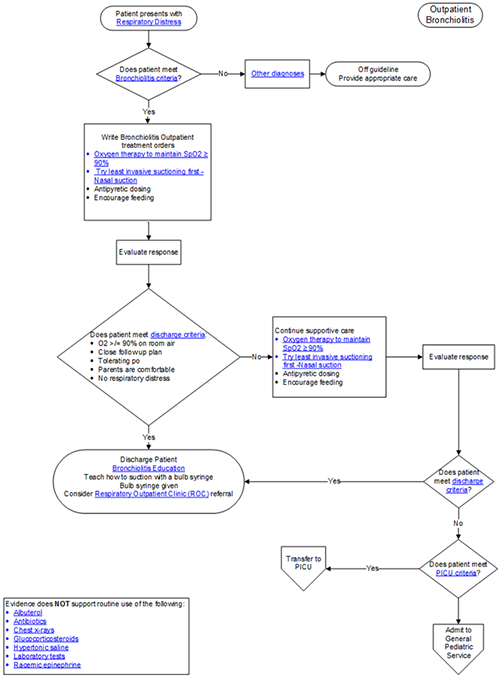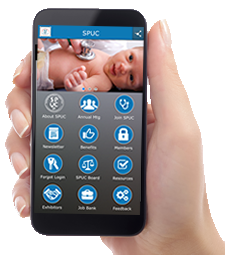SPUC Clinical Advisor
Bronchiolitis
 Winter is the time for bronchiolitis! There are many diagnostic and pharmacologic interventions that are not recommended by the American Academy of Pediatrics (AAP), but continue to be routinely ordered for patients with bronchiolitis. The AAP 2014 bronchiolitis guideline does not support the use of viral tests, chest radiography, blood cultures, or complete blood counts. Rather, the diagnosis of bronchiolitis should be made by history and physical examination. The AAP also discourages the use of albuterol, corticosteroids, and antibiotics. There are exceptions in which tests or therapies may be useful in patients with underlying medical conditions or an atypical course of illness. However, routine overutilization of diagnostic and pharmacologic interventions leads to radiation exposure, medication side effects, and uncomfortable procedures without improving the care of patients. With the help of SPUC member Dr. Amanda Nedved, Children’s Mercy Kansas City recently published their Clinical Practice Guideline in line with the most current AAP recommendations. Here’s the algorithm this SPUC member site is using this year at all their urgent care sites.
Winter is the time for bronchiolitis! There are many diagnostic and pharmacologic interventions that are not recommended by the American Academy of Pediatrics (AAP), but continue to be routinely ordered for patients with bronchiolitis. The AAP 2014 bronchiolitis guideline does not support the use of viral tests, chest radiography, blood cultures, or complete blood counts. Rather, the diagnosis of bronchiolitis should be made by history and physical examination. The AAP also discourages the use of albuterol, corticosteroids, and antibiotics. There are exceptions in which tests or therapies may be useful in patients with underlying medical conditions or an atypical course of illness. However, routine overutilization of diagnostic and pharmacologic interventions leads to radiation exposure, medication side effects, and uncomfortable procedures without improving the care of patients. With the help of SPUC member Dr. Amanda Nedved, Children’s Mercy Kansas City recently published their Clinical Practice Guideline in line with the most current AAP recommendations. Here’s the algorithm this SPUC member site is using this year at all their urgent care sites.
Bronchiolitis - Outpatient Algorithm
Courtesy: Children’s Mercy Kansas City
This guideline is for infants and toddlers 2-24 months of age presenting with the typical bronchiolitis symptoms. Scroll down to view the Inpatient Algorithm. For infants less than two months use the Febrile Infant Guideline.

![]()
These guidelines do not establish a standard of care to be followed in every case. It is recognized that each case is different and those individuals involved in providing health care are expected to use their judgment in determining what is in the best interests of the patient based on the circumstances existing at the time. It is impossible to anticipate all possible situations that may exist and to prepare guidelines for each. Accordingly these guidelines should guide care with the understanding that departures from them may be required at times.
The SPUC Clinical Advisor is just a few clicks away. The advisor offers concise, Pediatric UC-specific guidelines for evaluating and treating a multitude of clinical scenarios. Information provided in the Clinical Advisor is not intended to provide physicians, healthcare providers or individuals with medical advice. The SPUC Clinical Advisor merely provides an abbreviated listing of guidelines for common pediatric urgent care situations.




